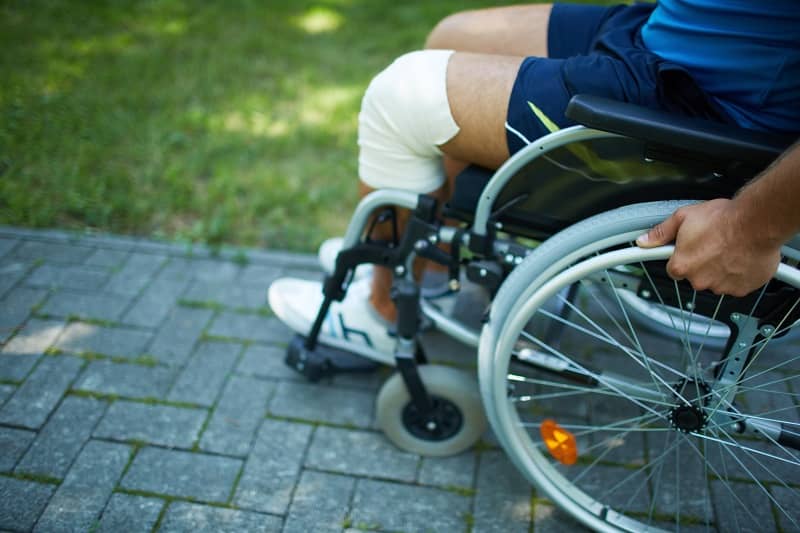Can You Get Disability For POTS? Some Key Details You Must Know!
Postural Orthostatic Tachycardia Syndrome, or POTS, is a condition that disrupts normal blood circulation. Heart rate and blood pressure must work together to maintain healthy blood flow when the body changes positions.
Regulation of blood pressure and heart rate involves the autonomic nervous system that regulates bodily functions, and sympathetic nervous system that triggers the fight or flight response. When these systems do not react properly, the heart is unable to respond properly causing orthostatic intolerance.
Orthostatic intolerance is the development of symptoms that come on when standing up from a reclining position, and are relieved by sitting or lying back down.
The primary symptoms of orthostatic intolerance are lightheadedness, fainting, and an uncomfortable, rapid increase in heartbeat. Symptoms may vary from patient to patient. POTS disability may result from such symptoms.
Types of POTS:
- Hyperadrenergic POTS:
This is a less common form of POTS, impacting about one out of every ten people diagnosed with the condition. Hyperadrenergic POTS is characterized by high levels of blood norepinephrine. With this type, blood pressure rises upon standing up so that, once upright, individuals experience a sense of anxiety, tremor, and cold sweaty hands and feet. Urgency to pass urine after standing upright and headaches are also common.
- Neuropathic POTS:
The most common form, neuropathic POTS, is caused by damage to the small fiber nerves that regulate the constriction of the blood vessels in the limbs and abdomen. The sympathetic nerves of the lower limbs are responsible for controlling the flow of blood up to the heart when changing from a lying or reclined position to a standing position. With neuropathic POTS syndrome, the nervous system fails to respond properly, causing pooling of blood in the lower extremities instead of being pumped to the heart. This leads to dizziness and increased heart rate upon standing.
- Low blood volume POTS:
Also known as hypovolemic POTS, this type is characterized by POTS-like symptoms caused by a reduction in blood volume. Symptoms may be similar to neuropathic POTS and hyperadrenergic POTS.
Symptoms:
As noted previously, POTS creates blood pressure disruption, causing it to either raise or lower, along with a fluctuating heart rate. In addition, people with this condition may also experience the following:
- Increased adrenaline causing your heart to race.
- You may experience chest pain following fluctuations to blood pressure and heart rate.
- You may feel dizzy when blood pressure lowers. Standing up from a sitting position or lying down will make the situation worse.
- Long walks and physical movements can become difficult.
- You may feel exhausted after physical activity.
- Fatigue and fainting are natural when you have POTS.
- Bloating and nausea also occur when you have Postural Orthostatic Tachycardia Syndrome.
- Temperature deregulation is observed among POTS patients.
- Nervousness and jittery feelings can cloud your mind.
- Vision may become blurry when you stand up or perform any sudden physical movement.
- You may notice that you are forgetting important and general things more frequently
- Body pain, headache, and other physical discomfort can also occur as a result of blood pressure changes.
- You may also experience insomnia and other complications during sleeping.
- Adrenaline disorientation can disrupt physical movements.
- Physical activity may become extremely difficult due to increased adrenaline, blood pressure, and irregular heartbeat.
Risk Factors:
Almost 450,000 people throughout the United States suffer from POTS. This condition affects mostly teenaged to middle-aged women. You may have POTS syndrome and disability if any of the following conditions trigger POTS-like symptoms:
- Viral infection or similar illnesses
- Head injury and pregnancy
- Medical diseases that require you to stay in bed for extended periods
- Mononucleosis, also referred to as mono or the “kissing disease,” where glandular fever increases the proportion of monocytes in your blood, leading to POTS-like complications
- Celiac disease and Sjogren’s syndrome-like autoimmune conditions
All of the symptoms, syndromes, and types of POTS can contribute to disability. Your body may not be able to sustain normal functionality such that maintaining gainful employment becomes impossible.
Is POTS A Disability?
Postural Orthostatic Tachycardia Syndrome are best described as a group of disorders. The condition is chronic which means it may qualify for disability benefits, such as Social Security Disability Benefits (SSDI) or for Long Term Disability under the Employee Retirement Income Security Act (ERISA).
It is important to obtain documentation of your condition and disabilities from a qualified medical doctor who has experience or specializes in conditions like POTS. Your medical records should include an evaluation of the condition, prescribed medications, and other treatment records necessary to substantiate your claim for disability benefits for POTS.
When normal activities of daily living, such as cooking, bathing, cleaning, etc., are interrupted because of a syndrome or disease like POTS; or employment-type activities such as lifting, moving, carrying, or even sitting, standing, and walking for prolonged periods, become too difficult, it may be time to consider applying for disability benefits.
Your medical records must demonstrate your physical limitations. Your functional impairments will be assessed to determine eligibility for disability benefits. This evidence is necessary to confirm that you are unable to work due to POTS
Consult our 35+ Year experienced disability lawyers in Florida. We can file a new claim on your behalf, or assist you with appealing an application that has been denied. Our team has assisted hundreds of clients with complex disability claims.

